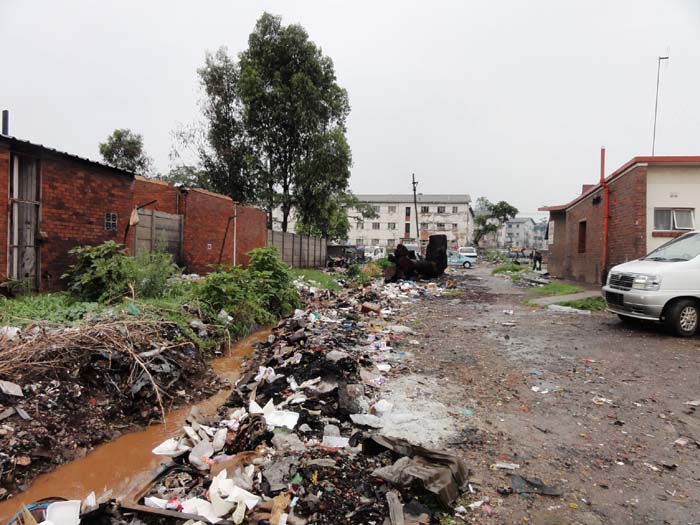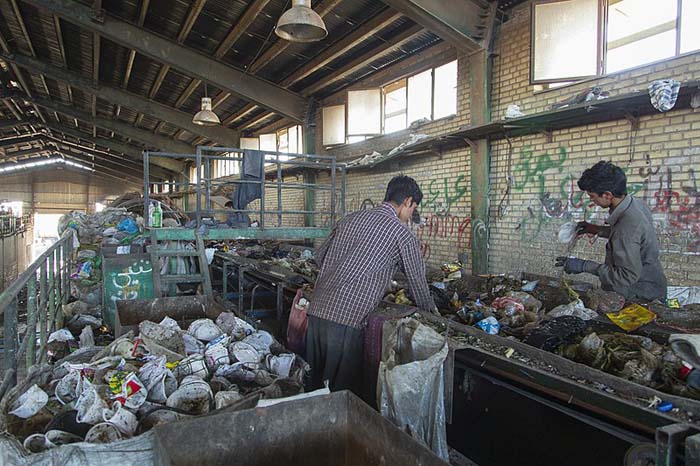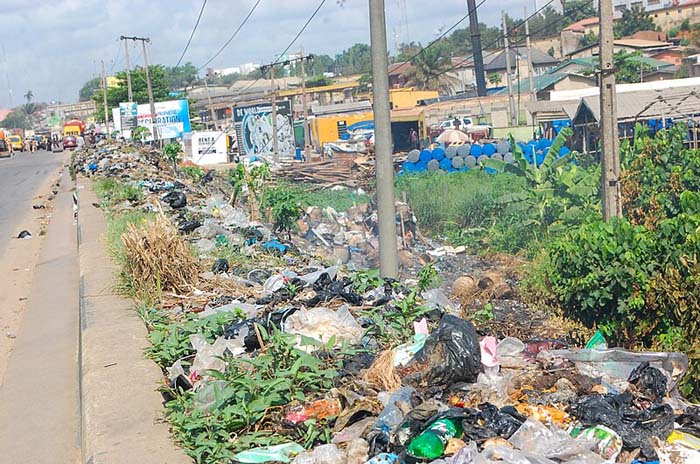
Effective waste management is crucial for protecting the environment and maintaining public health. It entails methodically collecting, transporting, treating, and disposing of waste products, beginning with their collection and ending with their disposal.
There are a number of reasons why efficient waste management is crucial:
Aesthetic and social advantages
Well-managed waste contributes to cleaner and more visually appealing communities. As a result, communities are less likely to suffer the social and economic costs associated with waste and unlawful dumping. Clean places are more appealing to businesses and tourists. Additionally, they make people feel better about living there.
Ensuring the Well-being and Safety of the Public
Proper waste management is associated with serious health risks. Incorrectly dumped waste can pollute water supplies, attract insects, and spread infectious diseases. For instance, mosquitoes, which are vectors for diseases like dengue fever and malaria, can multiply in cities with poorly managed waste.
Economic Advantages
Well-managed waste can yield huge monetary gains, and employment opportunities in waste collection and recycling may arise as a result. Municipalities and industries can also save money by recovering valuable materials from waste. Public health and contamination problems can have a financial impact, but effective waste management systems can reduce that impact.
The Conservation of Resources
One of the main goals of efficient waste management is reducing the impact on the environment. By reducing our demand for new raw materials through recycling and reuse, we can protect our limited supplies of fossil fuels, timber, and minerals. Recycling also helps conserve power because it typically takes less energy to produce items from recycled materials than from virgin ones.
Mitigation of climate change.
Effective waste management can reduce greenhouse gas emissions. Landfills largely produce methane, a powerful greenhouse gas. Anaerobic digestion and composting can greatly decrease methane emissions by removing organic waste from landfills. Recycling also helps cut down on energy-intensive manufacturing, which in turn reduces greenhouse gas emissions.
Protecting the environment
Proper waste management helps preserve the environment by decreasing pollution. Improper waste management can result in contamination of the soil, water, and air, putting the health of humans, wildlife, and ecosystems at risk. Pollutants leached into the environment from dangerous waste materials, such as electronics and chemicals, can have lasting negative effects.
Best type of waste management
Depending on the kind of waste and the specifics of the area, different approaches are required for efficient waste management. Some recommendations for effective waste management are as follows:

- Recycle
- Composting
Recycling is the process of turning organic waste, such as discarded food and yard trimmings, into nutrient-rich soil amendments.
- Material Recovery
Taking in materials that are going to be discarded and transforming them into something useful.
- Landfilling
- Sanitary Landfills
Locations are created to keep waste away from the environment in order to avoid groundwater and soil pollution.
- Bioreactor Landfills
A sanitary landfill uses expedited microbial processes to break down organic waste more quickly.
- Energy Recovery
- Anaerobic Digestion
Anaerobic digestion converts organic waste into digestate and biogas, two byproducts that are used as fertilizer and renewable energy, respectively.
- Waste-to-Energy
Pyrolysis, gasification, or combustion are the methods used to convert non-recyclable waste into energy.
- Specialized Waste Management
- Electronic Waste
Specialized programs can recycle electronics with salvageable materials.
- Dangerous Waste
To reduce potential hazards to human and environmental health, specialized treatment and disposal procedures are necessary.
- Source reduction and reuse
- Decrease
One can reduce their impact on the environment by selecting products and materials with lower waste production rates.
- Reuse
Reusing things rather than throwing them away can help reduce waste.
What is the first step towards waste disposal?
Waste separation is the initial stage in the waste disposal process. This requires sorting waste at the landfill or recycling center into various types, including electronic waste, non-recyclable, organic, dangerous, and recyclable. Properly separating waste types before processing, treating, and disposing of them can reduce environmental impact, increase recycling rates, and streamline waste management processes.
The most important part of waste management
The most important aspect of waste management is reducing waste at the source. The “recycle, reuse, reduce” method emphasizes preventing waste production.
Here’s the most important part of waste management:
Economic Advantages:
- Efficiency
By reducing waste and increasing efficiency, businesses and households can cut costs.
- Cost Savings
If people reduce waste production where it begins, they can spend less on waste collection, transportation, and disposal.
The Effects on the Environment:
- Contamination Reduction
Minimizing waste generation can reduce pollutants released into the soil, water, and air during waste processing and disposal.
- Conservation of Resources
Reducing waste helps preserve natural resources by decreasing the need for raw materials.
Energy Savings:
- Lifecycle Impact
Cutting down on waste reduces energy consumption throughout a product’s lifecycle, from production to final disposal.
- Production and disposal
In most cases, creating new goods from raw materials requires more energy than recycling or reusing those materials.
Sustainability:
- Lasting Viability
Conserving resources for generations to come is the goal of sustainable waste management practices.
- Ecosystem Health
Reducing waste sent to incinerators and landfills is possible to preserve ecosystem health.
Compliance and Regulation:
- Business Responsibility
Reducing waste is an important part of business social responsibility. People are increasingly holding businesses accountable for their environmental impact.
- Meeting Standards
Strict regulations governing waste disposal are in place in many areas. Reducing waste at the source makes meeting these legal requirements and avoiding penalties easier.
In order to reduce waste effectively, it is necessary to:
Streamline Operations
Reducing overproduction through streamlining production processes and optimizing supply chains.
Encourage behavioral changes
Providing information on the value of waste reduction and the steps to take to accomplish it to individuals and organizations.
Make Durable Products
Making things that can be upgraded or fixed with ease and last longer.
Problems caused by mismanagement of waste
Improper waste management can lead to several major issues affecting the economy, human health, and the environment. The following are some of the most significant problems caused by improper waste management:
- Social Issues
Displacement of Communities
- In extreme circumstances, the construction of massive landfills can force entire communities to relocate, wreaking havoc on their social networks and means of subsistence.
Social Inequality
- With the increased likelihood of living in close proximity to waste disposal sites, low-income and marginalized communities bear a disproportionate share of the burden of waste mismanagement.
Quality of life
- Living close to poorly managed waste sites negatively impacts people’s quality of life due to unpleasant smells, unsightly surroundings, and overall environmental degradation.
- Economic Issues
Economic Liability in Healthcare
- The healthcare costs associated with treating diseases and conditions linked to toxic exposure and contamination increase because waste mismanagement causes health problems.
Property Value Declines
- Property values can drop when people live close to poorly managed landfills, which hurts homeowners and cuts into local tax income.
The Impact of Tourism
- Tourist spending, which can be a lifeline for some towns’ economies, declines when people see waste and pollution in public places.
Cleaning Costs
- Health crises, sire rehabilitation, and waste cleanups can be extremely costly for communities and governments.
- Environmental Issues
Contamination
- Water Contamination
Contamination of aquatic ecosystems and potable water can occur when incorrectly disposed of chemicals and leachate from landfills seep into surface water and groundwater.

- Land Contamination
Soil contamination harms flora and fauna due to improper waste disposal practices, such as inadequate landfill management and unlawful dumping.
- Global Warming
Organic waste decomposes in landfills to produce methane, a potent greenhouse gas that accelerates global warming.
- Air Pollution
Burning waste, particularly hazardous materials and plastics, releases toxic fumes and particulate matter into the air, causing air contamination and respiratory problems.
- Destroying Habitats
Landfills and other waste dumping sites destroy many natural habitats, disrupting ecosystems and causing biodiversity to decline.
- Health Issues
Transmission of Diseases
- When people come into direct contact with hazardous waste, they can experience serious health problems, including respiratory issues and skin infections.
- If waste management is improper, pests like mosquitoes, flies, and rats can spread diseases like leptospirosis, dengue fever, and malaria.
Exposure to Toxic materials
- Reproductive problems, neurological damage, and cancer are just some of the health problems that can arise from exposure to chemicals and heavy metals from poorly disposed hazardous waste.
Effective Solutions for Reducing Waste Mismanagement
Education and awareness
- Public education regarding the significance of correct waste disposal and recycling can foster better waste management practices at the community and individual levels.
Regulation and legislation
- Stricter regulations on waste disposal and management can hold municipalities and industries accountable for their environmental practices.
Technological Advances
- To reduce the impact of waste mismanagement, we need to create and implement new waste processing technologies, such as advanced recycling methods and waste-to-energy plants.
Sustainable Practices
- Encouraging sustainable consumption and manufacturing practices can reduce overall waste generation and ease the burden on waste management systems.
How to eliminate the overproduction of waste?
To reduce waste overproduction, an integrated strategy that addresses different points in the production and consumption processes is required. Given below are a number of approaches:
1. Encourage teamwork and joint ventures
- Private-Public Partnerships
Create all-encompassing waste management solutions by bringing together the public sector, private sector, and nonprofit organizations.
- Working Together in the Industry
Collaborate with other businesses in your industry to brainstorm ways to reduce waste and exchange ideas on what works.
2. Make product design better
- Modular Design
Create products that are easily recyclable, repairable, or upgradeable to promote the reuse of materials and components.
- Design for Longevity:
Reduce the need to replace products as often as possible and reduce the amount of waste produced by making them more durable and sturdy.
- Environmentally friendly materials
When making a product, try to choose materials that won’t harm the environment, such as recyclable or biodegradable ones.
3. Make systems for waste management better
- Sorting and Separation
To make recycling and composting easier, set up processes that sort and segregate waste effectively.
- Turning Waste into Energy
Use incineration or other waste-to-energy methods to turn non-recyclable trash into usable energy, cutting down on landfill usage.
- Composting:
Composting organic waste is the best way to reduce the burden on landfills and increase the yield of compostable material for agricultural use.
4. Educate and engage stakeholders
- Corporate Responsibility
Businesses should implement sustainable practices and educate themselves about their waste reduction and environmental impact statistics.
- Consumer Awareness
Promote the importance of waste reduction and sustainable consumption. Motivate people to engage in practices such as conscious shopping, composting, and recycling.
5. Implement eco-friendly production methods
- Simplified Production
Implementing lean manufacturing methods can optimize your production processes, minimize waste, and increase efficiency. This method uses just-in-time manufacturing, which cuts down on stockpiling and unnecessary production.
- Efficient Use of Resources
Reduce energy and raw material waste. Some examples of this include better energy use, recycling materials used in production, and utilizing renewable resources.
Businesses and people alike can help create a greener economy by implementing these techniques, which will drastically cut down on waste.
Conclusion
It is impossible to overstate the significance of waste management. It depends on environmental protection, public health, resource conservation, economic benefit generation, climate change mitigation, and clean and appealing communities. The need for efficient and environmentally friendly waste management strategies is rising in direct correlation to the world’s expanding population and increasing consumption levels. Individuals, industries, and governments alike are responsible for the responsible and sustainable management of waste.
